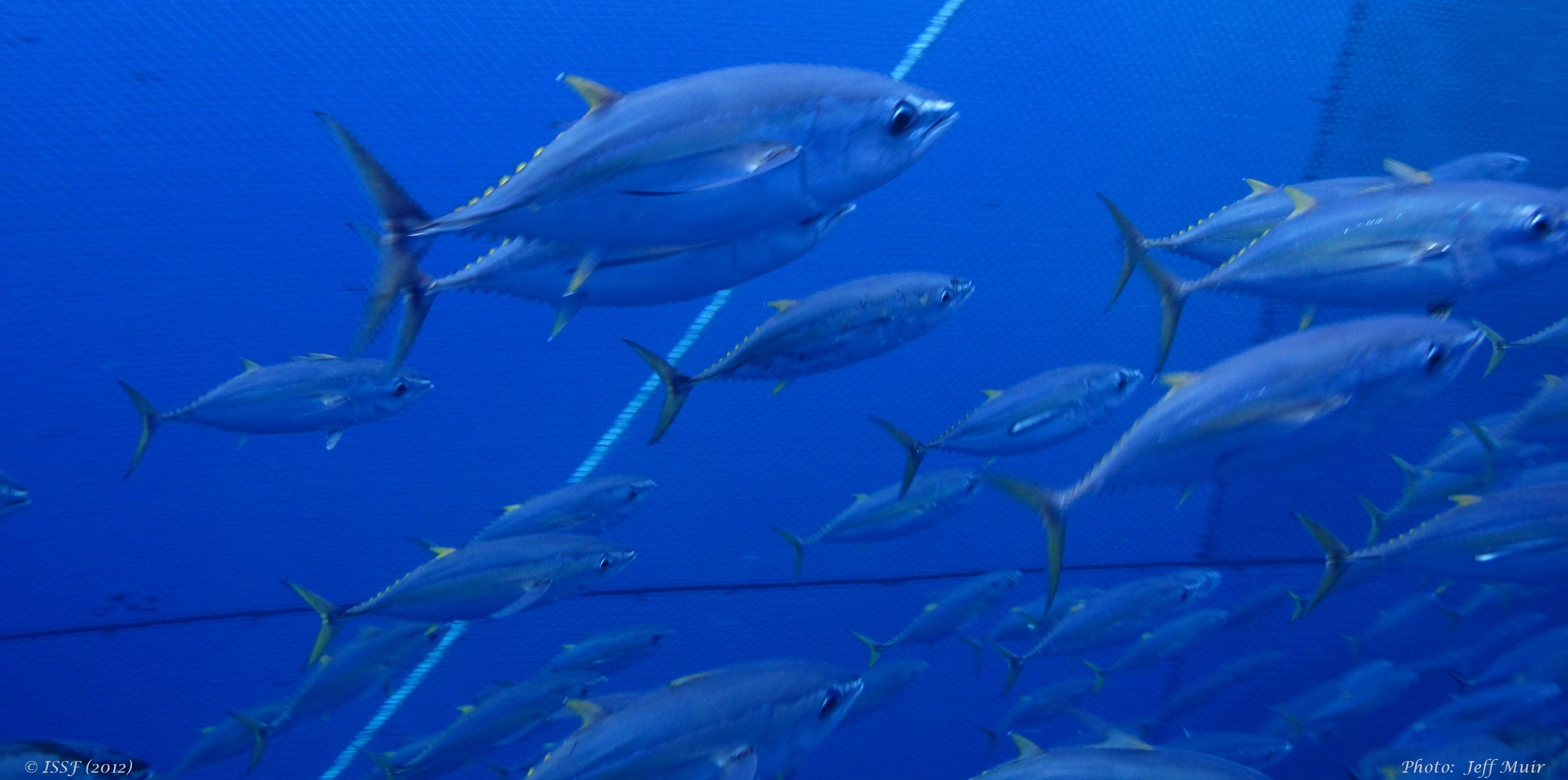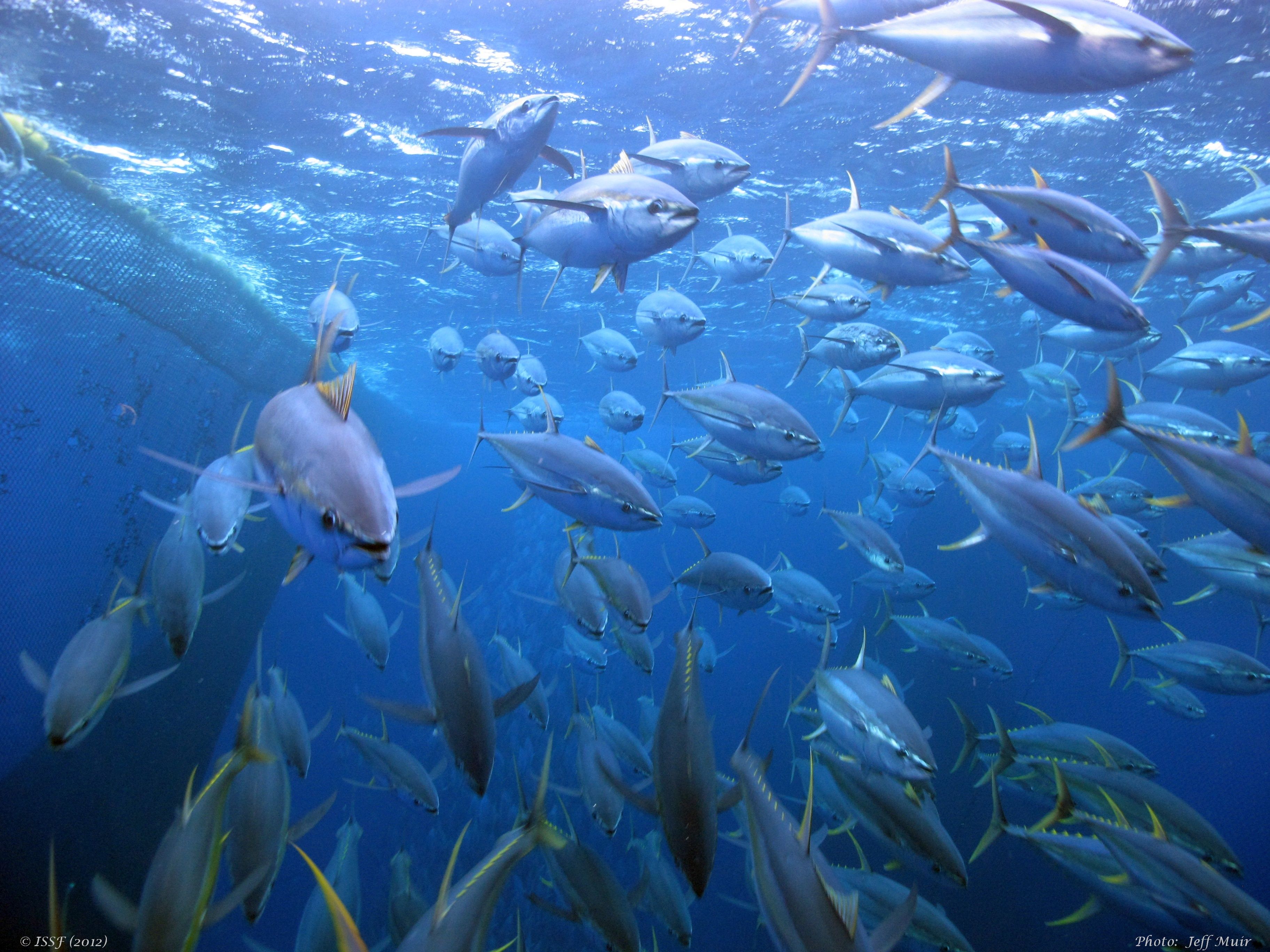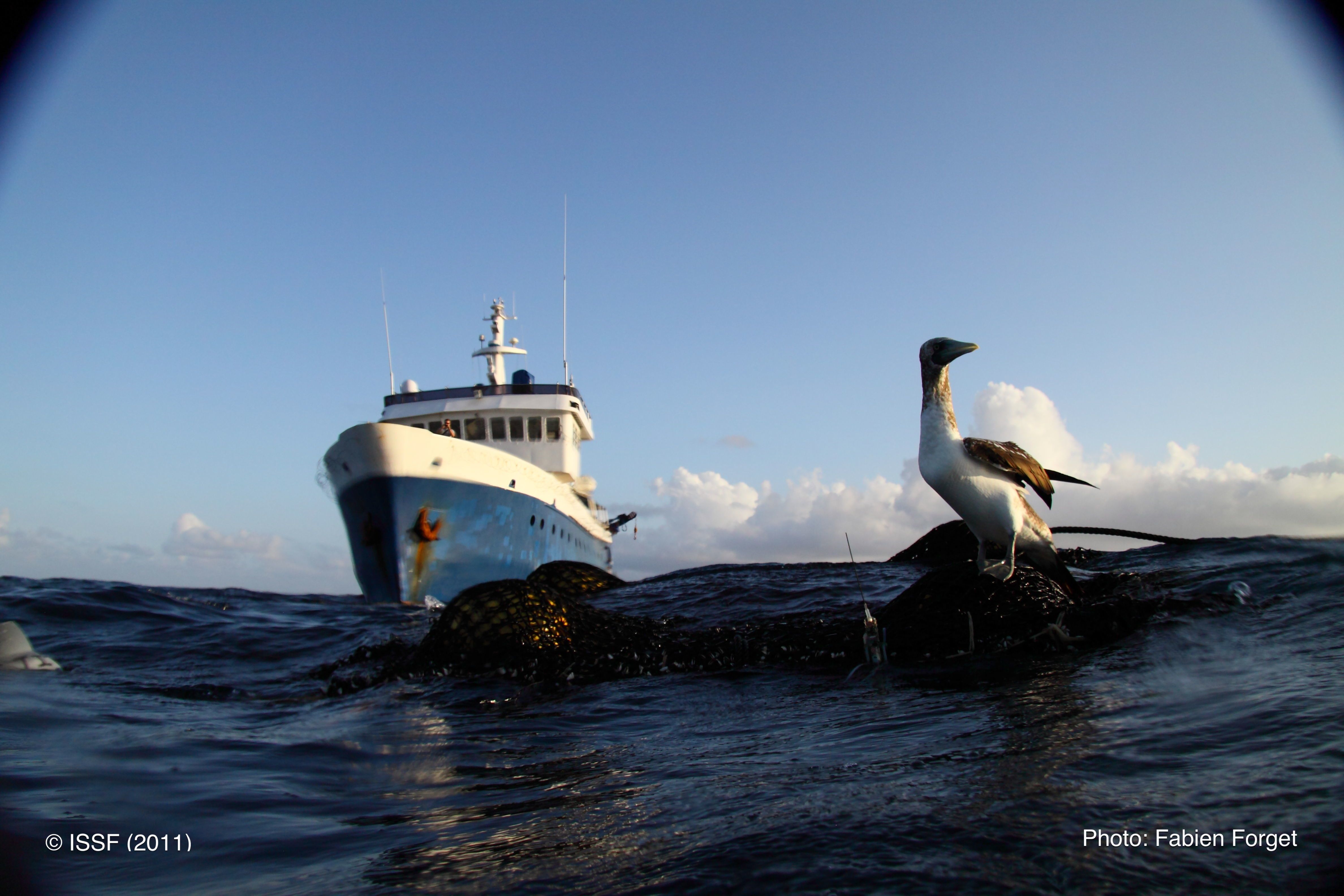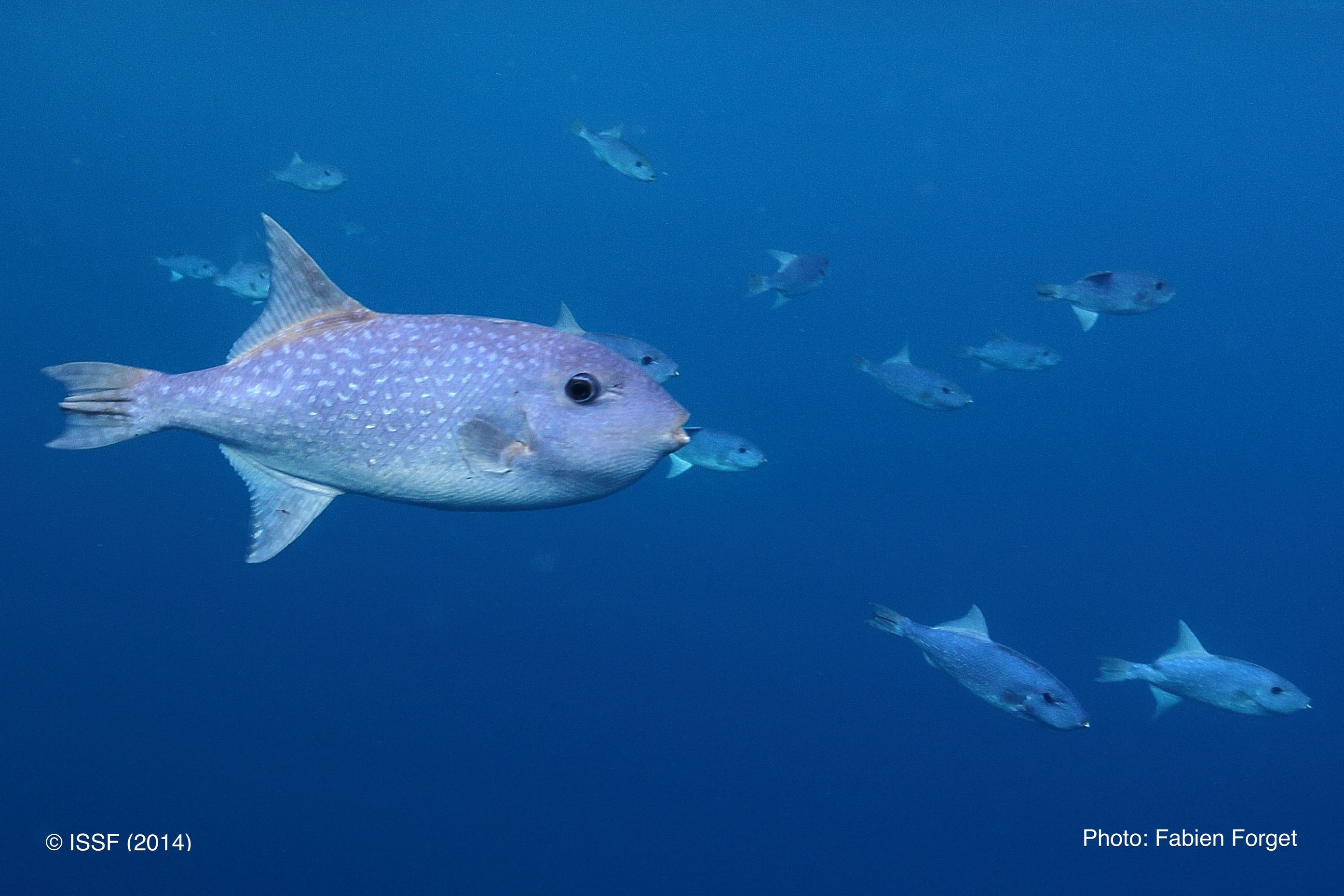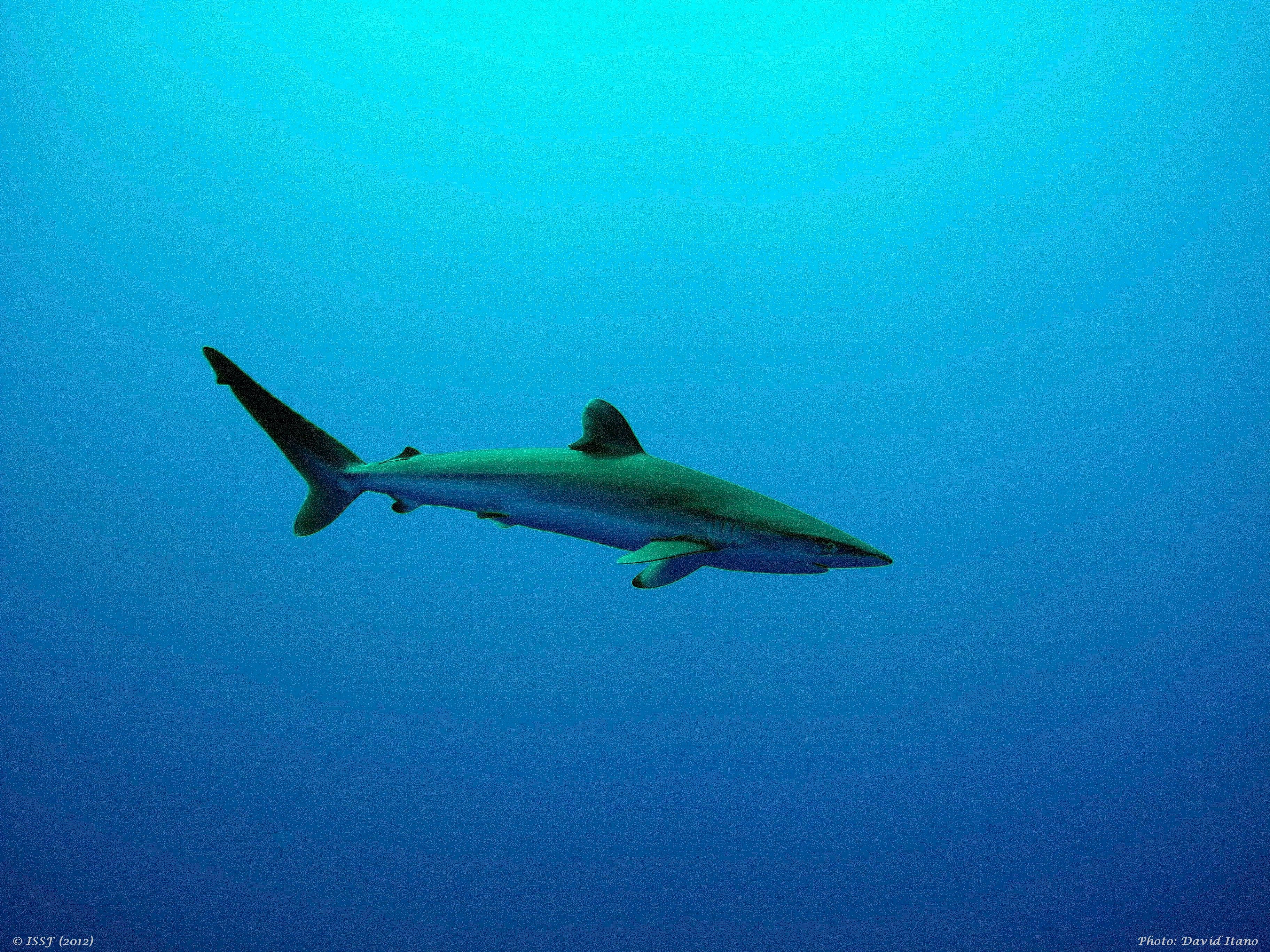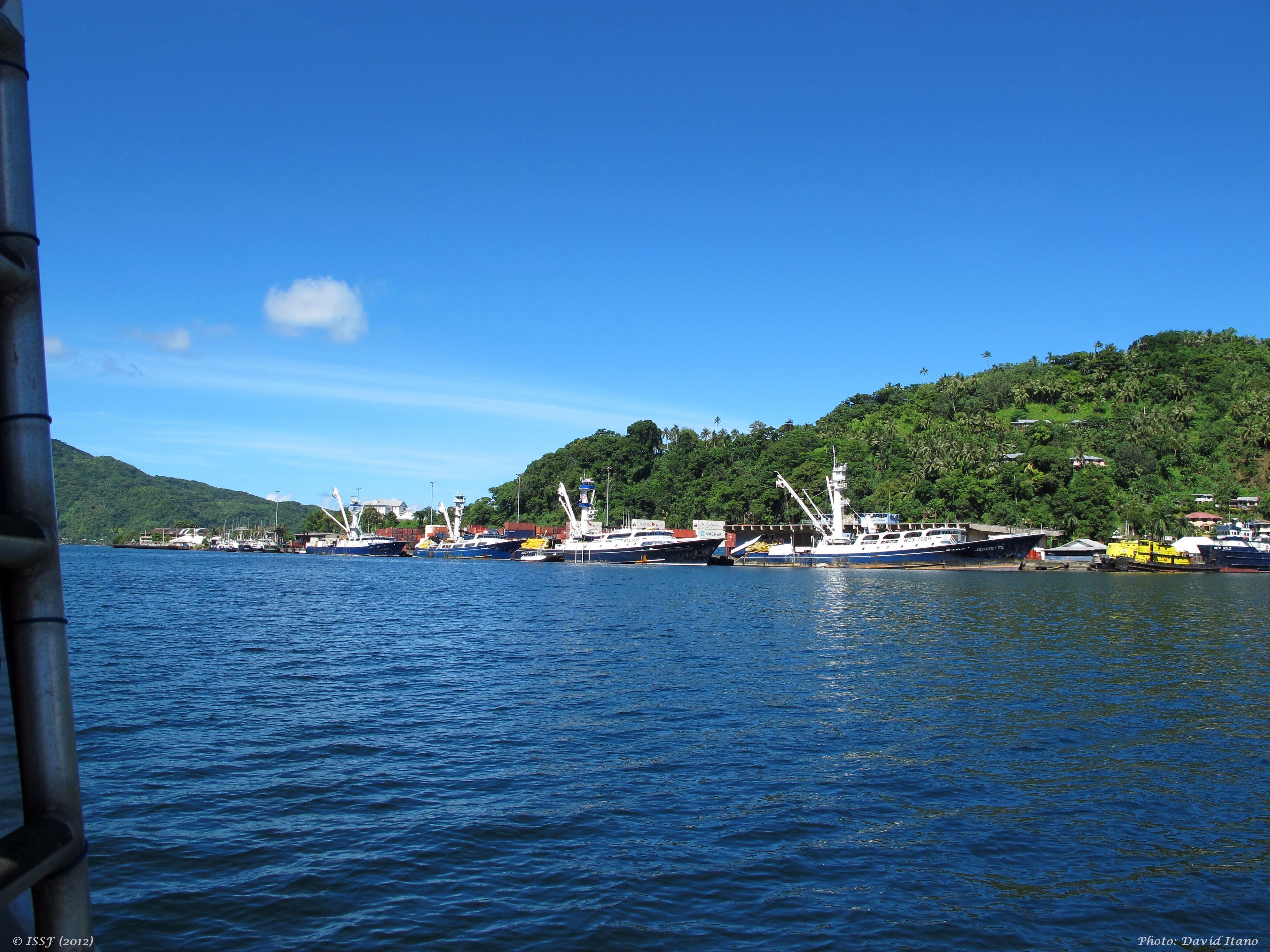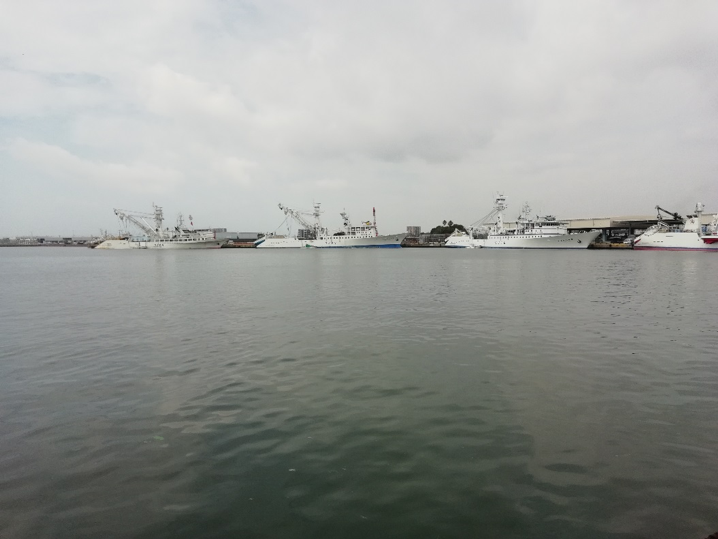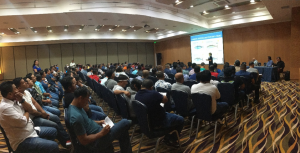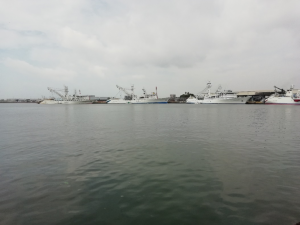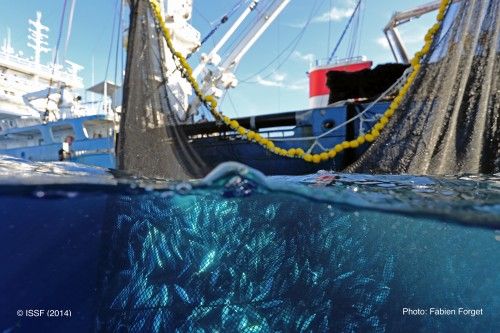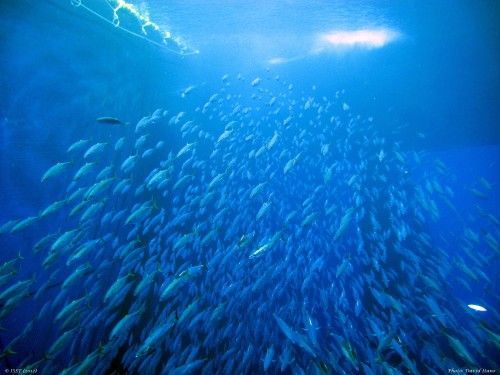86% of Global Tuna Catch Comes from Stocks at Healthy Levels; Some Stocks Remain Overfished
Of the total tuna catch, 86% came from stocks at “healthy” levels, an 8% increased share of the total catch since last reported, according to an October 2018 International Seafood Sustainability Foundation (ISSF) Status of the Stocks report. Skipjack tuna stocks — at healthy levels in all ocean regions — still comprise more than one-half of the total catch.
Our latest #tuna #stock-status report reveals notable changes for several commercial #species. Share on XThough many of the broad indicators of overall global stock health remain unchanged, there were several notable changes for specific commercial tuna species:
The assessment for Western and Central Pacific bigeye was more optimistic, showing that the stock is not overfished and that recent management measures put in place by the Western and Central Pacific Fisheries Commission (WCPFC) appear to be working effectively.
Atlantic Ocean bigeye received a pessimistic stock assessment from the International Commission for the Conservation of Atlantic Tunas (ICCAT) and remains overfished. In 2017, Atlantic bigeye catches exceeded the total allowable catch (TAC) by approximately 20%. ISSF has long advocated that ICCAT adopt stock-specific management measures to effectively control the catch of bigeye and other overfished species in the region including Atlantic yellowfin.
Catches of Eastern Pacific bigeye in 2017 increased 10% from 2016 levels. The Inter-American Tropical Tuna Council (IATTC) conducted an update assessment of the stock that appears to indicate that the stock is experiencing overfishing. The results should be viewed with caution due to the high levels of uncertainty in the assessment. Nevertheless, several fishery indicators suggest that the management measures in place are insufficient to effectively control fishing.
The stock status of South Pacific albacore is confirmed as very healthy, but the stock assessment covers only the WCPFC Convention Area South of the equator, not taking into consideration part of the catches from the IATTC Convention Area (EPO).
There were no other major changes in tuna stock status since the previous February 2018 Status of the Stocks report; the updated report reflects new data made available at 2018 tuna Regional Fisheries Management Organization (RFMO) meetings held through October 2018.
Key Statistics in the Report
- Total catch: In 2016, the total major commercial tuna catch was 4.9 million tonnes. More than half of the total catch (57%) was skipjack tuna, followed by yellowfin (30%), bigeye (8%) and albacore (4%). Bluefin tunas (3 species) accounted for only 1% of the global catch. These percentages changed only slightly from the February 2018 report.
- Abundance or “spawning biomass” levels: Globally, 65% of the 23 stocks are at a healthy level of abundance, 13% are overfished and 22% are at an intermediate level. In terms of total catch, 86% come from healthy stocks, 10% from overfished stocks and 4% from stocks at an intermediate level. Unchanged from the last reporting, the stocks receiving orange scores — indicating overfished status — remain Atlantic Ocean bigeye, Pacific Ocean bluefin and Indian Ocean yellowfin.
- Fishing mortality levels: 70% of the 23 stocks are experiencing a well-managed fishing mortality rate and 17% are experiencing overfishing.
- Largest catches by stock: The five largest catches in tonnes are Western Pacific Ocean skipjack, Western Pacific Ocean yellowfin, Indian Ocean skipjack, Indian Ocean yellowfin and Eastern Pacific Ocean skipjack.
- Tuna production by ocean region: Most (53%) of the world’s tuna is harvested from the Western and Central Pacific Ocean, followed by the Indian Ocean (20%), Eastern Pacific Ocean (13%) and Atlantic Ocean (10%).
- Tuna production by fishing gear: 65% of the catch is made by purse seining, followed by longline (12%), pole-and-line (8%), gillnets (3%) and miscellaneous gears (12%). These percentages have not changed since the February report.
About the Report
There are 23 stocks of major commercial tuna species worldwide — 6 albacore, 4 bigeye, 4 bluefin, 5 skipjack, and 4 yellowfin stocks. The Status of the Stocks summarizes the results of the most recent scientific assessments of these stocks, as well as the current management measures adopted by the RFMOs. Updated several times per year, Status of the Stocks assigns color ratings (green, yellow or orange) using a consistent methodology based on three factors: Abundance, Exploitation/Management (fishing mortality) and Environmental Impact (bycatch).
ISSF produces two reports annually that seek to provide clarity about where we stand — and how much more needs to be done — to ensure the long-term sustainability of tuna stocks: the Status of the Stocks provides a comprehensive analysis of tuna stocks by species, and the Evaluation of the Sustainability of Global Tuna Stocks Relative to Marine Stewardship Council (MSC) Criteria provides scores for the stocks and RFMOs based on MSC assessment criteria. The MSC-certified fisheries list (Appendix 2) in Status of the Stocks complements the Evaluation report. Together, these tools help to define the continuous improvement achieved, as well as the areas and issues that require more attention.
In addition, ISSF maintains a data-visualization tool based on its Status of the Stocks report. The “Status of the Stocks Tool” is located on the ISSF website and accessible through the Status of the Stocks overview page; users can easily toggle through tuna stock health indicators and filter by location, species and other key stock health and catch factors.
###
Editor’s Note: Key global tuna catches statistics are calculated using 2016 data. Note that 2017 catches were not available for some of the ocean regions at the time of updating the report.
